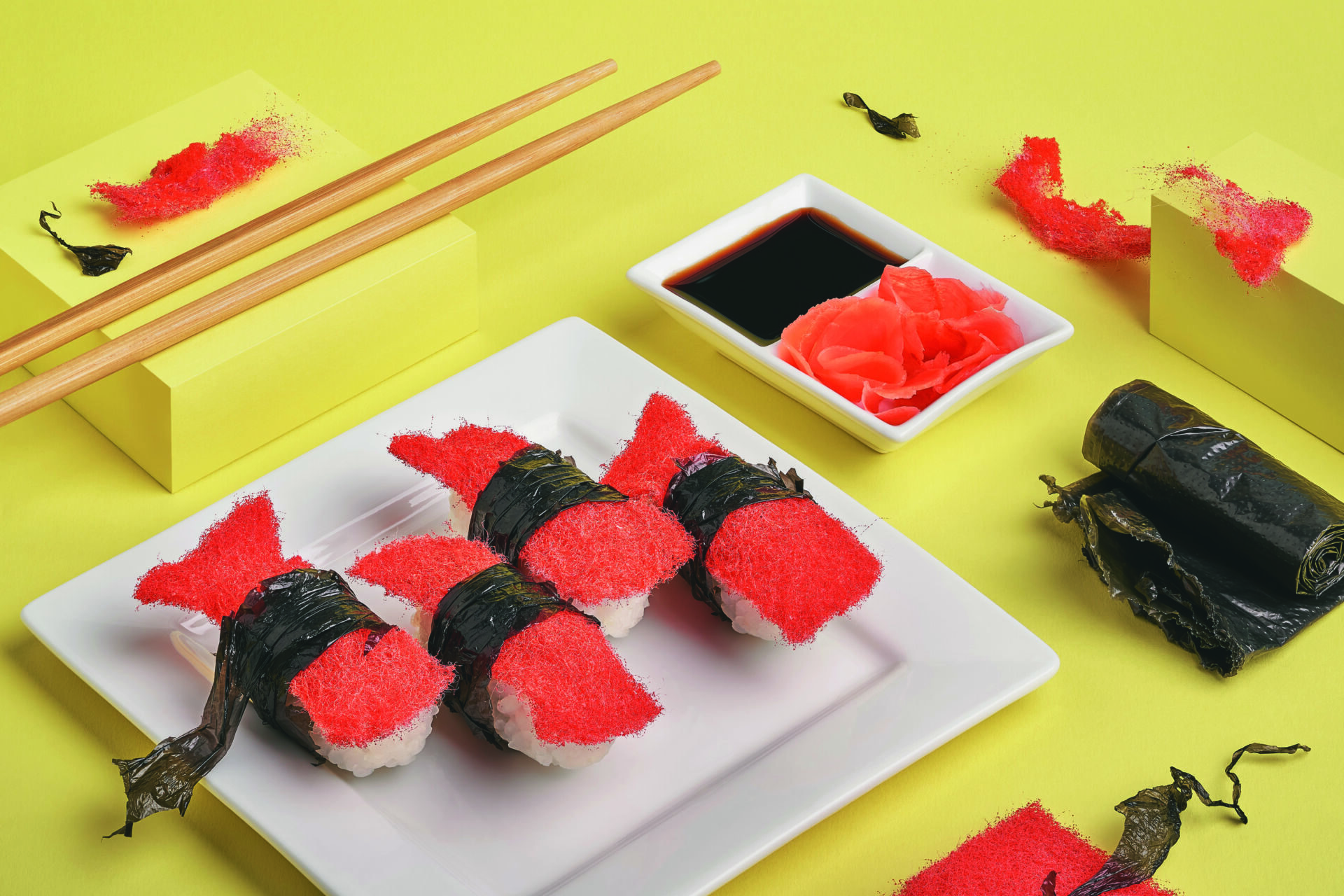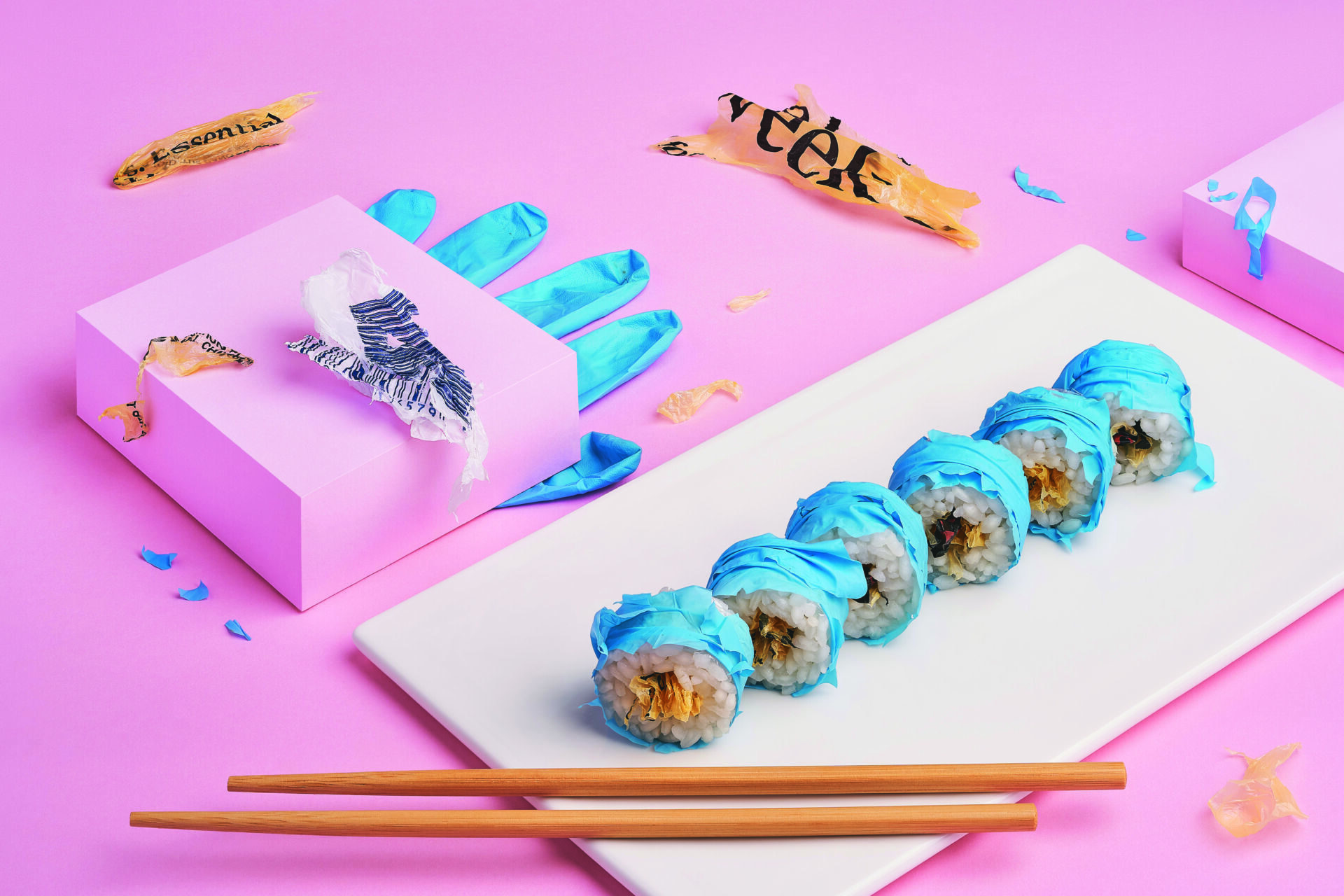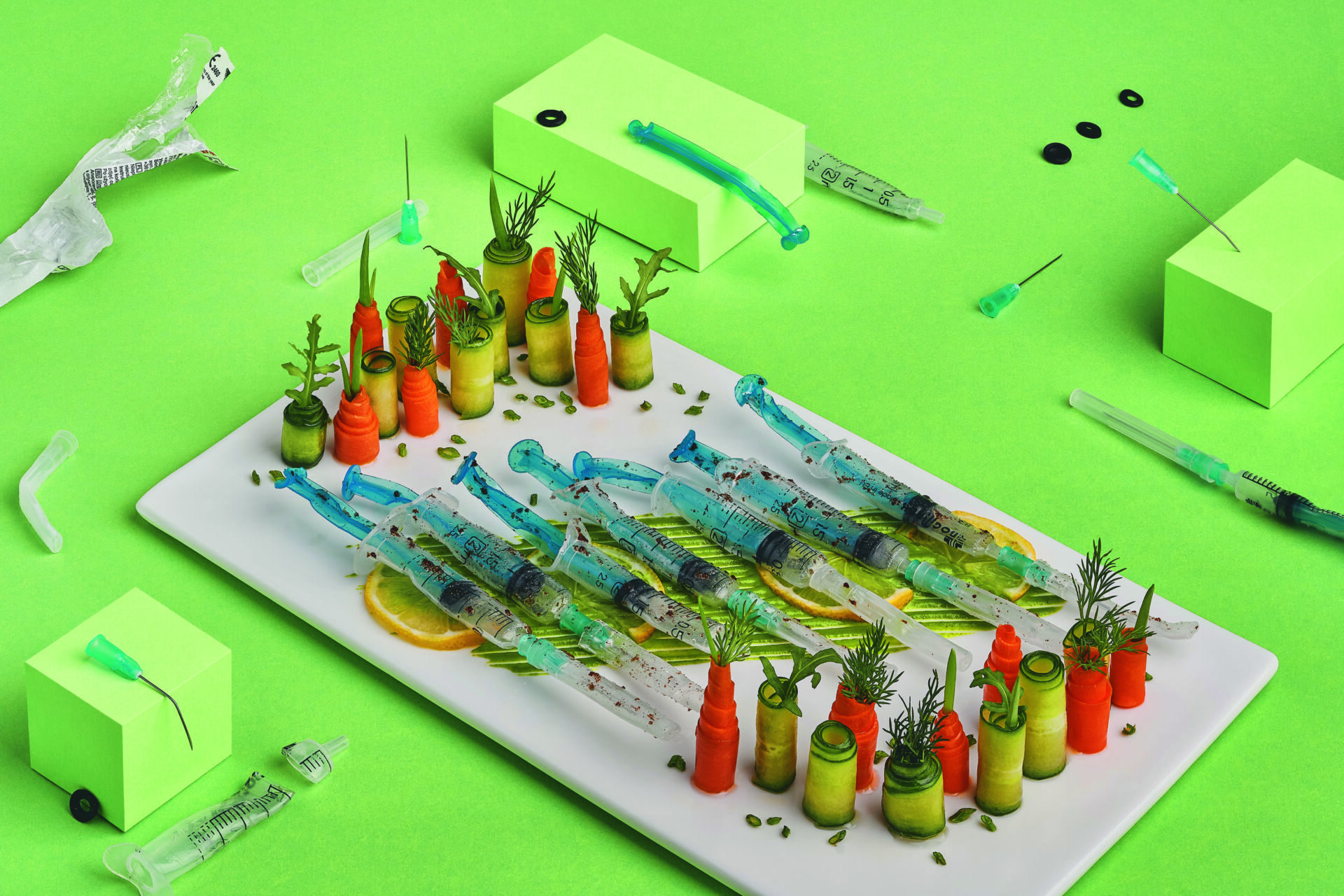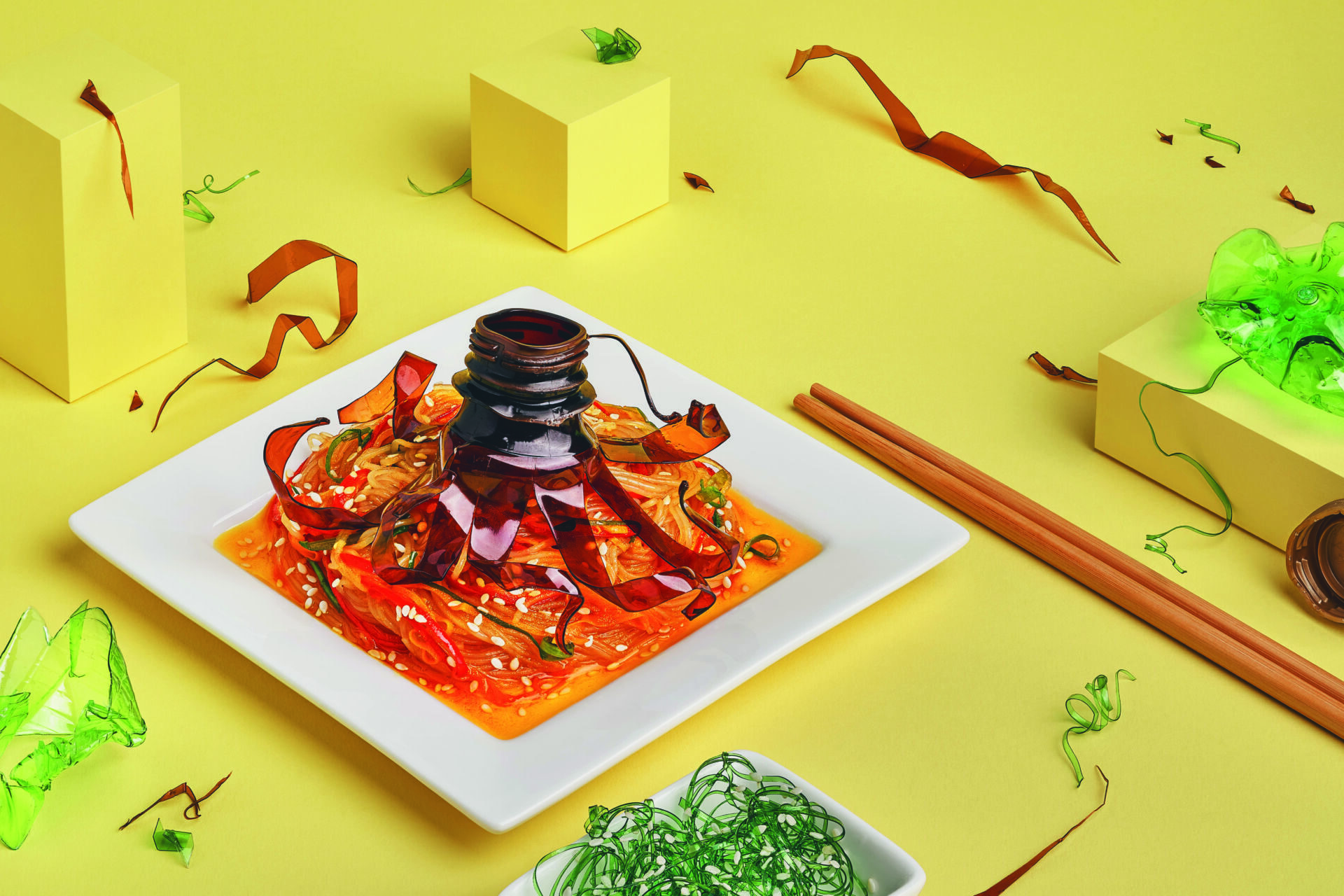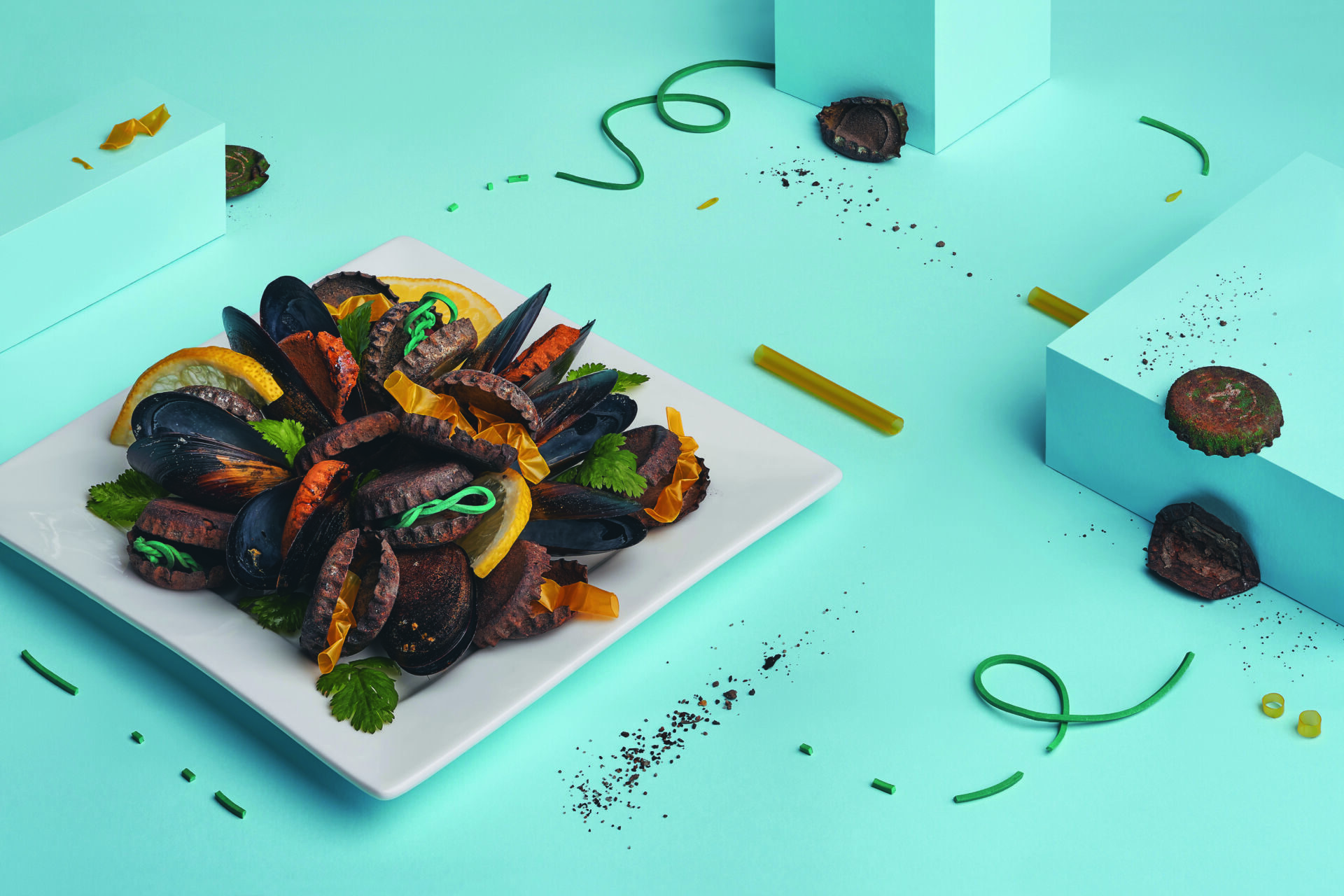Maryna Masel
Menu for Tomorrow
Social media platforms are overflowing with photographs of food. Some posters show off culinary delights they tried during their trip or brag about their cooking skills. Ad images of mouth-watering sushi or juicy burgers interrupt your newsfeed, pushing you to order them online. Having a meal is a daily ritual these days, just like taking smartphone photos. Day-to-day actions become so common that we stop thinking about the processes that enable them.
Ukrainian artist Maryna Masel created “Little Culinary Stories”, her first photo project, taking inspiration from avant-garde artist Wassily Kandinsky. Kandinsky deployed colours and shapes, classifying paints by their smells, sounds, and forms; colour-and-shape combinations created original visual symphonies. Using this method, Maryna combines shapes and colours through edible elements and conjures abstract compositions typical for avant-garde painting.
At first sight, the works from her latest photo series, “Menu for Tomorrow”, look like typical ad shots for a glossy magazine or a new restaurant’s promo campaign. Bright colours and evenly filled frames grab viewers’ attention. The focus is on plates of food. However, taking a careful look up close, one sees that it is not a salmon steak or mussels but plastic, trash, and everyday things like shopping bags, wine corks, and plastic forks. Aesthetics and filth blend, teetering on the brink. The photographs provoke mixed feelings of admiration and aversion.
Focusing on colour and composition, the artist puts different accents to work. Instead of a central abstract story, Maryna moves onto a laconic, even filling of the frame, highlighting the central object. In the centre of each frame, there is a plate of “food” where artificial items are mixed with natural products, decorating the main dish. The elements of this main “dish,” split into pieces, are scattered around the white plate in a seemingly random yet balanced manner. Like food scraps after cooking, these elements are lying, casually forgotten, on a clean surface.
“Menu for Tomorrow” addresses the global environmental problem—pollution of the world oceans. Trash and industrial waste are the deadliest marine-life killers. Most people see this problem as abstract and out of touch with reality. Oceans are a major source of food for humans. Masel shows how seafood is transforming and what fish or mussels might look like in the future. It is a critical gaze that urges us to think about whether we are genuinely willing to consume these new foods.
Maryna Masel is a young photo artist based in Kyiv, Ukraine. She began her professional path as a photographer in 2018. Prior to that, she had a few start-ups and a business career spanning more than 15 years. She participated in many contests and exhibitions such as Female Ukrainian Photographers 2021 (finalist) or the collective photo exhibition “Torture. Human. Life.” in 2019 in Kyiv, Ukraine.
Kateryna Radchenko is a curator, photographer, and photography researcher. She founded the international festival Odesa Photo Days in 2015 and still acts as the director. She curated exhibitions in Ukraine, South Korea, Sweden, Georgia, France, Belarus, and Latvia. Her articles were published in several international magazines and on online platforms such as EIKON, FOAM, Fotograf and Magenta magazines.
#42 food
Archive
- #45 hypertension
- #44 empathy
- #43 collecting
- #42 food
- #41 postdigital photography
- #40 earthlings
- #39 delight, pain
- #38 death, when you think about it
- #37 uneven ground
- #36 new utopias
- #35 living with humans
- #34 archaeology of euphoria
- #33 investigation
- #32 Non-work
- #31 Body
- #30 Eye In The Sky
- #29 Contemplation
- #28 Cultura / Natura
- #27 Cars
- #26 Documentary Strategies
- #25 Popular Music
- #24 Seeing Is Believing
- #23 Artificial Worlds
- #22 Image and Text
- #21 On Photography
- #20 Public Art
- #19 Film
- #18 80'
- #17 Amateur Photography
- #16 Photography and Painting
- #15 Prague
- #14 Commerce
- #13 Family
- #12 Reconstruction
- #11 Performance
- #10 Eroticon
- #9 Architecture
- #8 Landscape
- #7 New Staged Photography
- #6 The Recycle Image
- #5 Borders Of Documentary
- #4 Intimacy
- #3 Transforming Of Symbol
- #2 Collective Authorship
- #1 Face
